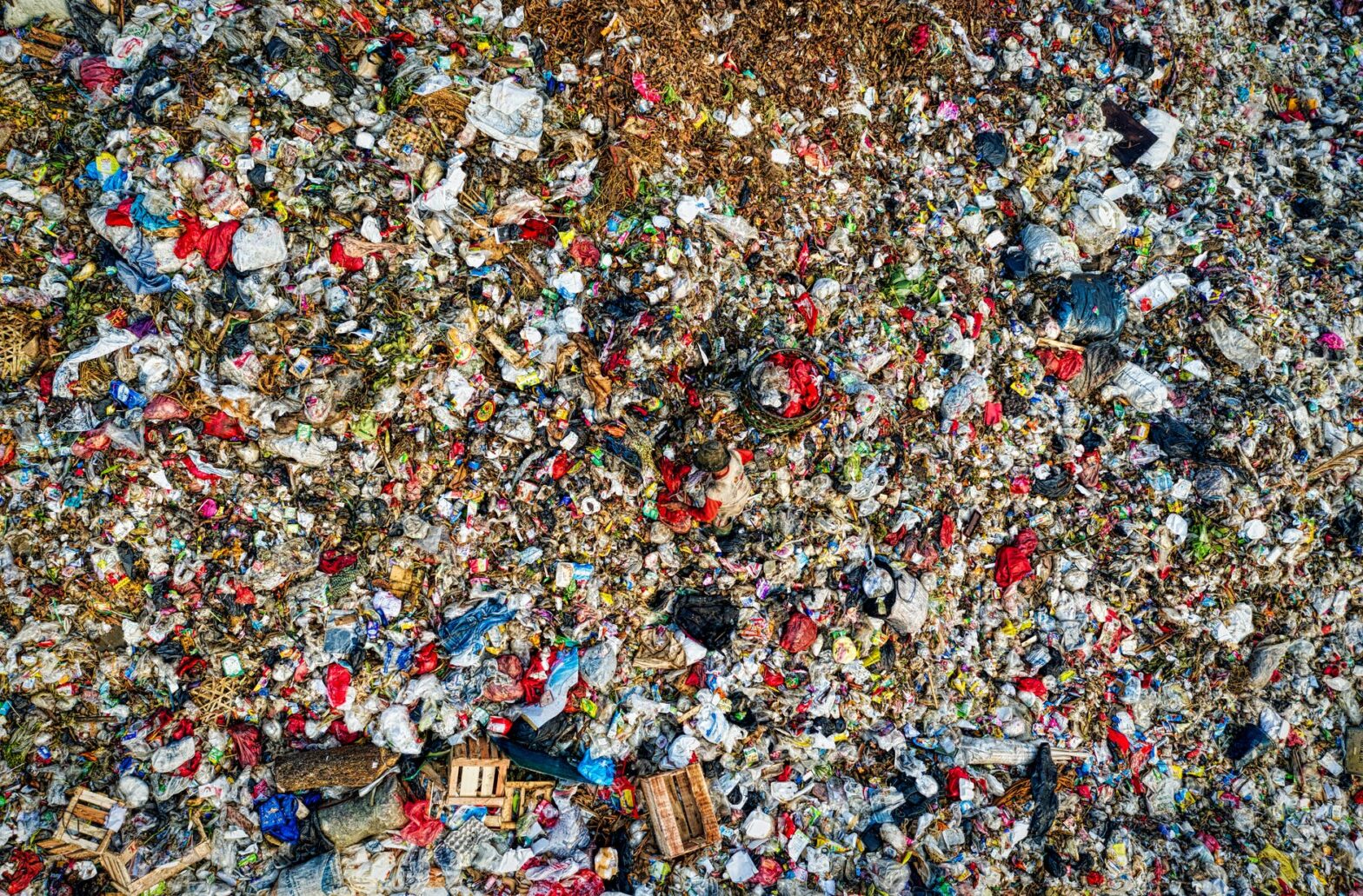By Dr Katrien Steenmans, Assistant Professor in Law
Blockchain technology has received much attention in recent years, predominantly because it has been hailed as a ‘disruptive technology’, its use in the financial sector, and as the underpinning technology for Bitcoin. Recently, blockchain has been adopted in the resource and waste management sector to, for example, support circular economy transitions (in which wastes and resource use are prevented, or alternatively reused, recycled, or recovered) and enhancing plastic product recyclability.[i]
What is blockchain technology?
Blockchain is in essence a sophisticated virtual data store, without the need for a central database or authority. They comprise a series of ‘blocks’, with each block containing the record of a set of transactions and linked to the previous block through a cryptographic hash.
How is blockchain technology being used in the waste management sector?
Blockchain is currently being used within the waste management sector in four ways:
- Cryptocurrency payments: This uses the commonly recognised blockchain function of facilitating payments – for example, where waste companies make and accept payments with cryptocurrency for waste transactions. Examples: Parry & Evans; Prismm Environmental.
- Cryptocurrency-based reuse and recycling rewards: This is a particular application of the above use case of cryptocurrency payments. This is where blockchain facilitates rewards-based systems in which people receive blockchain-secured items as a reward for bringing in waste materials. Examples: Agora Tech Lab; Plastic Bank.
- Monitoring and tracking of waste: As previously stated, blockchain is a data store. Some initiatives use blockchain to record data on, for example, the provenance of wastes, the amount of wastes, and the types of waste. This data is then used to optimise waste management operations. Examples: Citizen Involved & Technology Assisted Governance (CITAG); Dutch Ministry for Infrastructure; Vastum.
- Smart contract implementation: A smart contract is not a contract in legal terms,[ii] but a computer program and data that can be used to digitally monitor, execute or enforce agreements. Essentially, they support the automation of transactions. This is used in blockchain applications as it provides users with control over the rules and conditions of systems. Examples: Oil & Gas Supply Chain.
Key takeaways from research on blockchain technology, waste management, and law
- Blockchain is often used as a starting point as a result of its hype (i.e. a solution-based approach is adopted), when the starting point should be the problem. Blockchain should only be adopted if there are specific needs it can address.
- Blockchain technology is not a silver bullet. Even where it is used in response to needs, there are often numerous other questions and issues that still need to be addressed. It is neither necessary nor sufficient for, for example, regulatory incentives for and good governance of sustainable waste management.
- Despite being touted as having potential to disrupt governance systems, there are many barriers that need to be overcome. Anecdotal evidence suggests regulatory challenges are: General Data Protection Regulation concerns; lack of laws; and regulatory uncertainty and resultant perceived risks.
- Blockchain can provide lots of data on waste management to support the implementation of, compliance with, and the enforcement of resource and waste laws (e.g. measures such as extended producer responsibility and right to repair), but this is only useful if there are stakeholders with the expertise, time etc. to use it. Opportunities for informing regulatory measures incentivising circular economies and the required necessary skills need to be further explored.
Both journal articles on which this post is based are available open access:
- Katrien Steenmans, Phillip Taylor and Ine Steenmans, ‘Blockchain Technology for Governance of Plastic Waste Management: Where Are We?’ (2021) 10(11) Social Sciences 434. https://doi.org/10.3390/socsci10110434
- Katrien Steenmans, Phillip Taylor and Ine Steenmans, ‘Blockchain Technology for Sustainable Waste Management’ (2020) 2 Frontiers in Political Science. https://doi.org/10.3389/fpos.2020.590923
See also:
- Katrien Steenmans and Phillip Taylor, ‘A Rubbish Idea: How Blockchains Could Tackle the World’s Waste Problem’ (The Conversation, 9 April 2018) <https://theconversation.com/a-rubbish-idea-how-blockchains-could-tackle-the-worlds-waste-problem-94457> accessed 12 November 2021.
- Steenmans, K, Taylor, P and Steenmans, I, ‘Regulatory Opportunities and Challenges for Blockchain Adoption for Circular Economies’ (forthcoming in IEEE CPS Proceedings of Workshop on Blockchain & the Circular Supply Chain at IEEE Blockchain 2021).
This post presents recently published work by Dr Katrien Steenmans on the use of blockchain technology in the waste management sector. This research has been undertaken and published in collaboration with Dr Phillip Taylor (Senior Data Scientist, Trilateral Research and Honorary Research Fellow, University of Warwick) and Dr Ine Steenmans (Lecturer in Futures, Analysis and Policy, University College London), and was funded by a BA/Leverhulme Small Research Grant award (SRG18R1/180308). You can find out more about Katrien’s research through her Pure profile, which sets out her research interests, publications, and contact details. You can also find out more about Coventry University’s research through our dedicated research pages.
Notes
[i] Eg Mahtab Kouhizadeh, Joseph Sarkis and Qingyun Zhu, ‘At the Nexus of Blockchain Technology, the Circular Economy, and Product Deletion’ (2019) 9(8) Applied Sciences. https://doi.org/10.3390/app9081712; Chao Liu, Xiaoshuai Zhang and Francesca Medda, ‘Plastic Credit: A Consortium Blockchain-based Plastic Recyclability System’ (2021) 121 Waste Management 42. https://doi.org/10.1016/j.wasman.2020.11.045.
[ii] Smart contracts for legal transactions and purposes do not yet exist, and may never exist – see: Freshfields Bruckhaus Deringer, ‘Blockchain and Contract – a Smart New World’ (2018) <https://www.freshfields.com/en-gb/our-thinking/campaigns/technology-quotient/fintech/blockchain-and-smart-contracts/> accessed 12 November 2021; Jimmy Song, ‘The Truth about Smart Contracts’ (11 June 2019) <https://jimmysong.medium.com/the-truth-about-smart-contracts-ae825271811f> accessed 12 November 2021.

